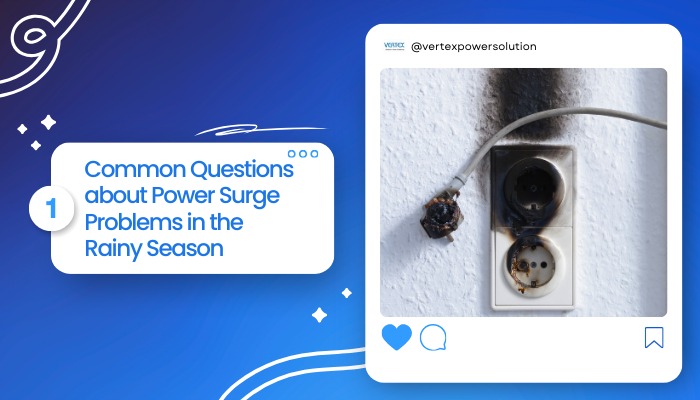1. What causes power surges during the rainy season?
Power surges during the rainy season are often caused by lightning strikes, which can send a massive surge of electricity through power lines. Additionally, heavy rainfall can lead to flooding and water ingress into electrical systems, causing short circuits and surges. High winds and fallen trees can also disrupt power lines and create electrical surges.
2. How can power surges affect my electrical devices?
Power surges can cause significant damage to electrical devices by overloading their circuits. This can lead to the failure of sensitive components, data loss, reduced lifespan of equipment, and even complete device breakdowns. Appliances like televisions, computers, refrigerators, and HVAC systems are particularly vulnerable.
3. What are the signs that a power surge has occurred?
Common signs of a power surge include:
- Flickering or dimming lights
- Tripped circuit breakers or blown fuses
- Sudden power loss in devices
- Burnt or scorched electrical outlets
- Unusual noise or odors from electrical appliances
4. How can I protect my home or business from power surges during the rainy season?
To protect your home or business from power surges, consider the following measures:
- Install surge protectors on individual devices and at the main electrical panel.
- Use uninterruptible power supplies (UPS) for critical electronics.
- Ensure proper grounding of your electrical system.
- Avoid using electrical devices during severe storms.
- Schedule regular maintenance checks of your electrical system by a qualified electrician.
5. Can a surge protector prevent all power surge damage?
While surge protectors can significantly reduce the risk of damage from power surges, they are not foolproof. High-intensity surges, particularly those caused by lightning strikes, can sometimes overwhelm even the best surge protectors. Therefore, it’s essential to use multiple layers of protection and take additional precautions during severe weather.
6. Should I unplug my devices during a storm?
Yes, unplugging devices during a storm is a simple yet effective way to protect them from power surges. This precaution disconnects your electronics from the power grid, preventing any surge from reaching them. It’s especially important for valuable and sensitive equipment like computers, televisions, and home entertainment systems.
7. What should I do if my electrical system is damaged by a power surge?
If you suspect that your electrical system or devices have been damaged by a power surge, take the following steps:
- Turn off and unplug all affected devices.
- Check your circuit breakers and reset any that have tripped.
- Call a licensed electrician to inspect your electrical system and repair any damage.
- Avoid using damaged devices until they have been professionally assessed and repaired.
8. Can insurance cover damage caused by power surges?
Homeowners’ and renters’ insurance policies often cover damage caused by power surges, but coverage can vary. It’s essential to review your policy and understand the specific terms and conditions. In some cases, adding a rider or endorsement for electrical surge protection may be necessary to ensure comprehensive coverage.
Conclusion
Power surges during the rainy season pose a significant threat to electrical devices and systems. Understanding the causes, effects, and protective measures can help you mitigate the risks associated with power surges. By taking proactive steps such as installing surge protectors, unplugging devices during storms, and maintaining your electrical system, you can protect your home or business from the damaging effects of power surges. If you experience any electrical issues, consult a qualified electrician to ensure your safety and the integrity of your electrical system.


